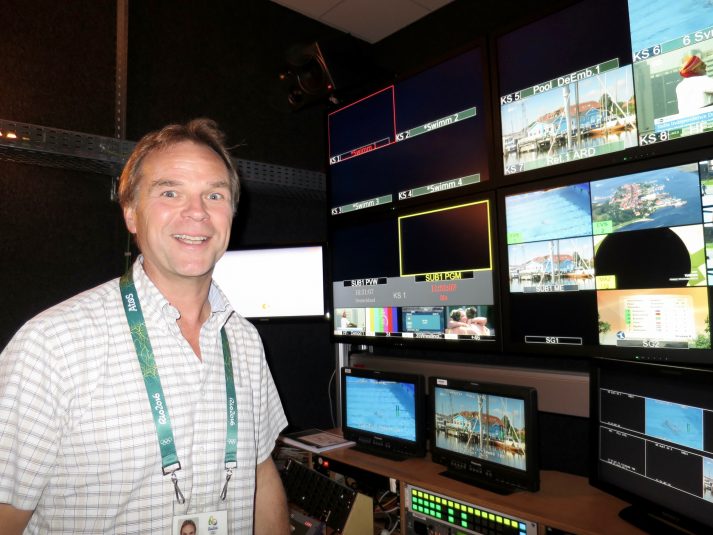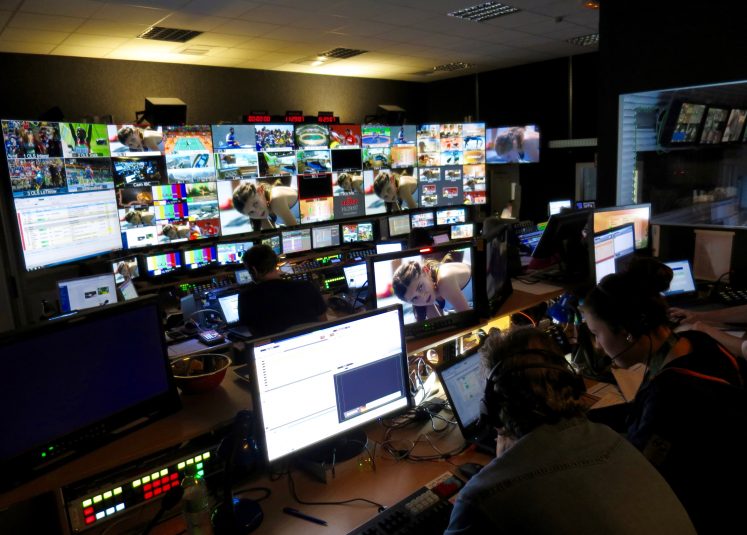Live from Rio 2016: Gunnar Darge of ZDF Happy With German Broadcast Effort
In an age of the shrinking IBC presence Germany’s ARD and ZDF are bucking the trend with a production space in the 2016 Rio Olympics IBC that is about 100 square meters larger than it was in the 2012 London Olympics IBC. “We have more editing suites here, 28, with seven of them working with EVS IP Director and the other 21 Avid suites,” says Gunnar Darge, ZDF, head of engineering and operations, special projects. “The reason for the larger space is we decided not to have unilateral OB production units with camera control or editing at the venues, with the exception of athletics where we have an OB unit from OBS.”

Gunnar Darge of ZDF is extremely happy with how the Olympic production is going.
The ARD and ZDF philosophy is to have as much of the production done on site at the event, and while there are less people here overall the commitment is still to send a completely produced signal back to Germany.
“It’s better to have everything done here because we’re directly at the event and it’s better for the editors and everyone,” says Darge. “We also are doing six additional channels of streaming content and the ARD and ZDF radio networks.”
Historically the two German broadcast channels split the distribution, alternating broadcast days. And now that streaming is such big part of the content creation and distribution process they also alternate responsibility for the streaming network productions which are done in six streaming control facilities.
The core of the production facility are three control rooms: a main control room that brings together the world feed signals, unilateral camera signals, and camera feeds from the studio at the TV tower and then two sub control rooms that are filling the void of not having unilateral facilities at venues. One of those rooms was used for swimming and is now dark while the other is still active for sports like equestrian, rowing, and canoeing.

The main Rio Olympics production control room at the ARD/ZDF area in the IBC.
“Next time we will do more remote production from home [in Germany] as other broadcasters have been doing it for a long time,” says Darge.
The equipment on site in Rio was all flown over as much of it was also used in Paris for the Euros football tournament that ended on 10 July. And like everyone else the German broadcasters battled (and still battle) a number of logistical issues that have become part and parcel of major sports event production in Brazil.
“From a production point of view we’re extremely happy that everything is running perfectly and that we have proved out all the systems,” says Darge. “And to have much of it brought over from Paris and be plug and play and running is absolutely fantastic.”
With the 2016 Summer Olympics wrapping up later this week the big question for ARD and ZDF is what, if any, role the German public broadcaster will have at the 2018 Winter Games, to be held in PeyongChang, South Korea, beginning on Feb. 9, 2018. Currently ARD and ZDF do not have any rights to broadcast the games as Discovery Communications is the rights holder for Germany and the rest of Europe. Usually at this point Darge and the team would be starting some of the planning for those games. But this year? That planning is on hold and it remains to be seen whether German sports fans who have come to expect a first-rate, home-nation production will look back sadly at the 2016 Rio Olympics as the end of an era.

